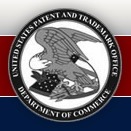Several Apple patents have appeared at the US Patent & Trademark Office. Following is a summary of each.
Patent number 20110041183 is for a system and method for call replacement. Disclosed are systems, computer-implemented methods, and computer-readable storage media for obfuscating a function call. The method receives a computer program having an annotated function and determines prolog instructions for setting up a stack frame of the annotated function and epilog instructions for tearing down the stack frame. The method places a first portion of the prolog instructions in the computer program preceding a jump to the annotated function and a second portion of the prolog instructions at a beginning of the annotated function. The method places a first portion of the epilog instructions at an end of the annotated function and a second portion of the epilog instructions in the computer program after the jump. Executing the first and second portions of the prolog instructions together sets up the stack frame. Executing the first and the second portions of the epilog instructions together tears down the stack frame. The inventors are Ginger M. Myles, Julien Lerouge, Tanya Michelle Lattner and Augustin J. Farrugia.
Patent number 20110040981 involves synchronization of buffered audio data with live broadcast. Various techniques relating to the buffering of a live audio broadcast on an electronic device and the subsequently playback the buffered data are provided. In one embodiment, the playback speed of the buffered data may be increased relative to the actual speed at which the data was originally broadcasted. If the buffered playback (using the increased playback speed) synchronizes or catches up to the live broadcast, the electronic device may disable buffering and output the live stream instead. This decreases processing demands by lowering processing cycles required for buffering (encoding, etc.) and playback of the buffered data (decoding, etc.), thereby reducing power consumption. The inventors are Aram Lindahl, Richard Michael Powell and Joseph M. Williams.
Patent number 20110039506 is for adaptive encoding and compression of audio broadcast data. Various techniques for adaptively encoding and compressing audio broadcast data to create a digital representation of the broadcast for storage on an electronic device are provided. In one embodiment, the audio broadcast data may be encoded and stored onto the electronic device using a particular codec and/or compression rate, the selection of which may be based upon one or more characteristics of the audio broadcast data signal, such as a genre parameter or a quality parameter. Particularly, the audio broadcast data may be encoded using either a music codec or a speech codec depending upon the genre parameter. Further, some embodiments may also provide for an adjustable compression bit-rate based at least partially upon the quality parameter of the audio broadcast. The inventors are Aram Lindahl, Richard Michael Powell and Joseph M. Williams.
Patent number 20110039506 involves a dynamic presentation framework. It involves a system that may include one or more processors, memory from which the processor may fetch instructions according to a clock operating at a frequency, a display device, and one or more programs stored in the memory, with instructions to create a structured file for storing data related to the media presentation, access the data related to the media presentation from the presentation application, organize the data related to the media presentation according to an event, and export the organized data related to the media presentation to the structured file. These instructions may also be executed as steps of a method and may be fetched during the execution of one or more programs stored in a computer-readable storage medium. The inventors are Michael Richard Peirce, Eric Tilton, David Mack and Mark Flider.
Patent number 20110041094 involves browsing or searching user interfaces and other aspects. User interfaces for browsing and/or searching are described. In one embodiment, a method includes displaying a first display area for display representations of documents matching a search query, the first display area configured to display content of the documents which can have a plurality of different types of content including at least one of text-based content and a folder, and displaying a second display area for selecting a selected document to be displayed in the first display area. Other embodiments are also described, and computer readable media and apparatuses are also described. The inventors are Julien Robert, Cedric Bray and Thomas Goossens.
Patent number 20110040977 is for sponge and hash functions using a Rubik’s Cube puzzle process. The present method is directed, in the computer data security field, to cryptographic sponge and hash function processes which are embodied in a computer system and are typically keyless, but highly secure. The processes are based on the type of randomness exhibited by manipulation of the well known three dimensional Rubik’s cube puzzle. Computation of the hash or sponge value (digest) is the result of executing in a model (such as computer code or logic circuitry) an algorithm modeling such a puzzle using the message as an input to the cube puzzle algorithm, then executing the cube puzzle algorithm. A state of the modeled cube puzzle (the final cube puzzle arrangement) after execution gives the sponge or hash digest value of the message. The inventors are Augustin J. Farrugia, Benoit Chevallier-Mames and Mathieu Ciet.
— Dennis Sellers



